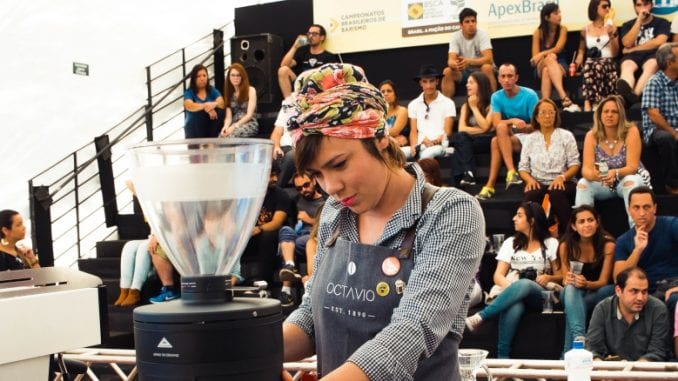
Martha Grill, the second-place finisher at the 2017 Brazilian Barista Championship, explains how she shifted from acting to coffee and shares some concerns about the barista profession in the biggest coffee-producing country in the world.
BY KELLY STEIN
SPECIAL TO BARISTA MAGAZINE
Photos courtesy of the Brazilian Specialty Coffee Association
For Martha Grill, everything is still fresh and exciting in the coffee business. A relative newcomer to the coffee industry, the former actress had to find a new career after breaking her leg and needing a job to help pay for her recovery. She now lives and breathes specialty coffee, which wasn’t her intention to begin with; she initially applied for a different job to help pay her medical bills. “I was actually searching for a pastry job, but it was taken already. When they offered me the barista position I accepted, even if I didn’t have coffee very often in that time,” Martha laughs.
Born in Porto Alegre in the southern region of Brazil, Martha quickly took to coffee, and she used the skills she picked up in acting to rise quickly through the ranks at Octavio Café in São Paulo. Barista competition wasn’t in her plans, but she decided to participate at the last minute, and began preparing by going to other coffee shops. “I was aware that I had to study and practice more, so I started visiting other coffee shops and investing in some courses,” she explains. Here, she talks to us more about her coffee career, her experiences preparing for competition, and the barista profession in Brazil.
Kelly Stein: What do you love most about coffee?
Martha Grill: Watching how fair trade with social and environmental traceability can really change a producing family’s life is magic. And as a barista, I can be an important part of this positive change. This is the main point that keeps me in this market.
It is inspiring listening to producers talk about improvements in their lives, houses, and working conditions after selling their production for a good and fair price. Without this, I wouldn’t be working with coffee.
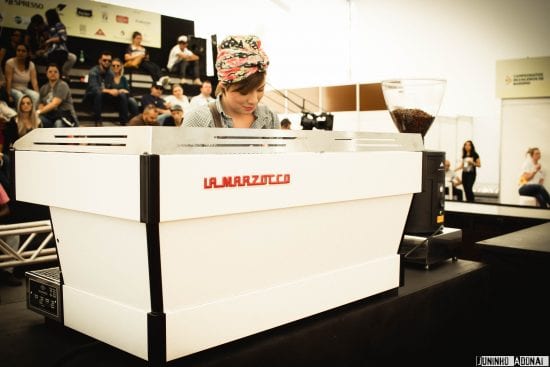
KS: How do you see the barista profession in Brazil?
MG: Baristas in Brazil play a supporting role in the coffee chain. The barista professional is not the protagonist. There is a serious problem of education, and just this fact can compromise the professional development and performance of baristas. Besides that, baristas are poorly paid and work long hours.
I watch this with sorrow because we have wonderful coffee farms in our backyard. It would be easy to have close relationships with producers, learn from them, and apply all that knowledge behind the bar. With no time and money restrictions, we don’t find ways to shorten these distances. Why do big companies and famous coffee shops brag about their sustainable and fair trade coffee without giving a decent pay to their employees? Or provide a career plan inside the company?
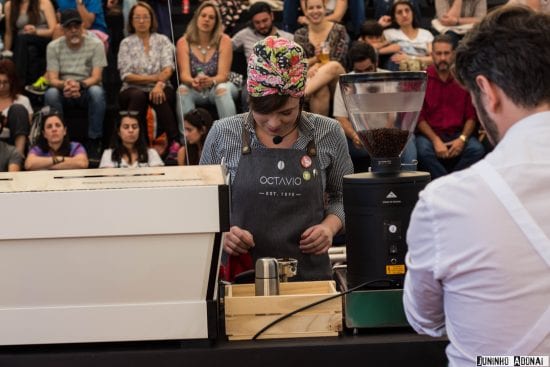
KS: Who helped you prepare for competition?
MG: If it wasn’t for Octavio Café, I wouldn’t have this trophy in my hands. They supported me in different ways: paying for my expenses (transportation, hotels, food), and also for specific courses such as specific technical orientation at Wolf Cafés School with Danilo Lodi. This was a milestone in my career.
I also took another class, Essential Sensorial, where the neuroscientist Fabiana Carvalho and the journalist Giuliana Bastos explore the sensorial features of coffee in a scientific way. With so little experience in coffee, I knew that I had to go further than others in terms of educating myself and buying materials for my presentation. For this reason, I asked for help from my social media circle and friends/supporters, and received a total of $1,500 R ($470 US) in donations. Another $3,000 R ($940 US) was from my own pocket. Fortunately it worked and I got second place.
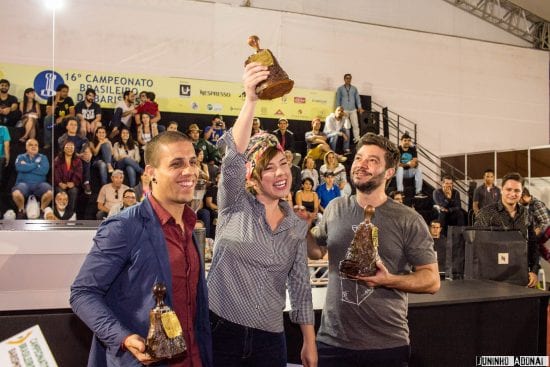
KS: What do you think worked well in your presentation?
MG: My presentation was very truthful: from choosing the family that produced my coffee to all the details of what tools and utensils I used. Training until exhaustion was definitely key as well, especially with the clock running against me. It’s funny that this experience showed me that I might have changed my profession but not my mission—I found in coffee a way to speak out about the matters that trouble me. In the end, I found myself on a stage, telling stories that make people think.
KS: What is it like to be a woman in this market?
MG: I look at the Brazilian coffee market and I see great women who changed the coffee scene here! Silvia Magalhães, for example, was the Brazilian champion three times (2003, 2004, and 2007) and has made it further than any Brazilian barista has by placing sixth at the World Barista Championship in Japan in 2007. Her and Cecília Sanada (the best barista in São Paulo region in 2008 and 2010), both from Octavio Café, have worked hard to raise the professional quality.
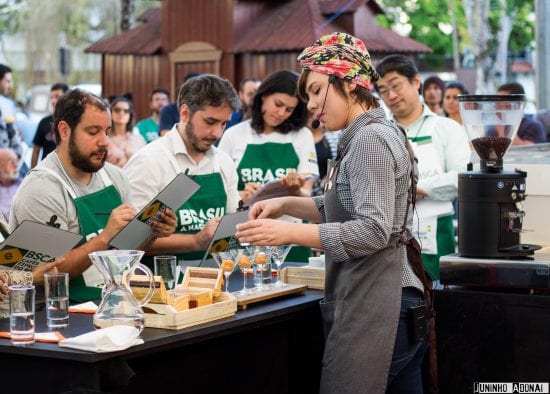
Isabela Raposeiras (the very first Brazilian barista champ in 2002) revolutionized how the domestic consumption market understands specialty coffee in her Coffee Lab. Yara Castanho was the national champion twice (2009 and 2010) and Graciele Rodrigues was the Brazilian champion in 2013. I also have several brave friends who are entrepreneurs in the coffee chain, without mentioning the amazing women producers hidden in beautiful terroirs.
 ABOUT THE AUTHOR
ABOUT THE AUTHOR
As a journalist, Kelly Stein has written about coffee in South America for six years in local newspapers and magazines, as well as for international publications such as STIR Tea & Coffee Magazine. Based in Brazil, she loves telling stories from the biggest coffee producer in the world. To follow her coffee and gastronomic adventures, follow her at Instagram: @kellinhas.

